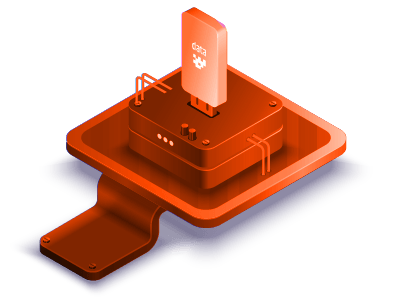Add On: Checklist

Guide teams through a workflow with a predefined checklist of items/actions to complete
Checklists
Checklists provide structure and organization when investigators deal with multiple tasks or processes. They help keep track of items requiring completion, deadlines, and any other information necessary for the job or operation at hand. Any context is suitable for using a checklist—from personal organization to project management to corporate workflow.
Checklists ensure that people who use them don’t forget any critical steps in a process or task. A detailed checklist helps avoid skipping steps, which helps prevent costly mistakes and wasted time. Additionally, checklists can help streamline complex processes and make them more accessible for all stakeholders. Finally, by breaking down large tasks into smaller components, checklists can also help teams identify which tasks should take priority over others. It helps keep projects on track and deadlines met.
Types of checklists for investigators
Checklists are an essential part of the investigative process. Not only do they provide guidance and structure, but they also help investigators ensure that all relevant information is collected and analyzed. Here’s a look at different checklists available to investigators and how they can be used effectively.
Step-by-step checklist :
The most basic type of checklist is a step-by-step list of tasks that must be completed for an investigation to progress. This type of checklist can help investigators stay organized and on track as they navigate the investigative process. Step-by-step checklists should include all necessary steps, such as interviewing witnesses, gathering evidence, and analyzing data. They should also have dates or deadlines for each task so that the investigator knows when specific tasks must be completed.
Checklist for evidence gathering :
Evidence gathering is one of the essential parts of any investigation. As such, investigators must have a clear plan for how best to collect evidence efficiently. A checklist for evidence gathering can help with this process by outlining what specific evidence needs to be collected, where it needs to be stored, and how it can be accessed later if needed. Such a checklist should also include instructions on when and how evidence must be packaged and labeled before being submitted for analysis or storage.
Checklist for report writing:
Once an investigation has been completed, a detailed report summarizing the findings and conclusions reached during the inquiry must be written. To ensure this process is done accurately and efficiently, many investigation teams use a report writing checklist that outlines all necessary steps in creating a comprehensive report, including collecting data from interviews and other sources, analyzing findings, and summarizing results. The checklist should also include review stages where other team members can review the report before it’s finalized.
By utilizing these checklists effectively throughout the investigative process, investigators can ensure that all relevant information is accurately collected while staying focused on their goals throughout their investigations.
Improvement of efficiency through the use of checklists
The benefits of utilizing checklists for investigators
For investigators, it is essential to have an organized workflow. To ensure that everything is done properly and efficiently, it is important to utilize checklists. Checklists provide the necessary structure for investigations and can be used in numerous ways. Here’s a look at how checklists can help investigators be more efficient and effective in their work.
Organized workflows :
Checklists are an excellent way to streamline an investigation from start to finish. They provide structure and organization that can help investigators stay on track while they analyze evidence, interview witnesses, and reach conclusions. Checklists also help ensure that all steps in the process have been considered and completed so that nothing is left out or forgotten during the investigation. This helps investigators stay organized and focused on their tasks, which increases the efficiency of their work.
Time management :
Using checklists can also help investigators manage their time effectively by providing them with a clear view of what needs to be done and when. By setting up a timeline with due dates for each task, investigators can make sure they are meeting deadlines and staying on schedule throughout the investigation process. This makes it easier for them to prioritize tasks based on urgency or importance without having to worry about forgetting something important along the way.
Record keeping :
Having a checklist also makes record keeping easier for investigators because they can use it as a reference point when gathering information or making notes about their progress as they go along. This can be especially useful when dealing with multiple cases at once since it allows them to quickly locate information from previous cases without having to search through piles of paperwork or documents. Having this type of record-keeping system in place also helps reduce errors since there will always be a document available for reference if something goes wrong or needs clarification during an investigation.
In summary, utilizing checklists is an effective tool for investigators who need to stay organized while investigating multiple cases simultaneously.
The importance of checklists for investigators
An investigator is aware that every step of the process is critical, and any misstep could jeopardize the outcome of their investigation. This is why it is essential to have a checklist of tasks that must be completed to ensure accuracy and thoroughness. Checklists provide investigators with a structured and organized way of managing their investigations, from start to finish. Here are reasons that describe why checklists are so important for investigators.
Organization & efficiency :
Checklists help investigators keep track of all the steps involved in their investigations, from gathering evidence to writing reports. This helps them stay organized and efficient during the investigative process by providing structure and guidance. By having everything laid out in front of them, they can easily see what tasks need to be done and when they need to be done, allowing them to focus on completing the task at hand rather than worrying about what comes next. It also ensures that nothing gets overlooked or forgotten in the process.
Time management :
Time management is key when it comes to investigations because any delays can affect the outcome. Having an organized checklist allows investigators to prioritize tasks according to urgency and importance, which helps them avoid wasting time on unnecessary or unimportant tasks or activities that could delay the investigation process. It also enables them to effectively manage their workloads and allocate resources where needed most efficiently.
Accuracy & thoroughness :
Having a well-organized checklist helps investigators make sure that no crucial step is missed or overlooked during their investigations. It also prevents them from relying too heavily on memory, which can lead to mistakes or incorrect information being included in reports or other official documents related to the investigation process. A comprehensive checklist provides a roadmap for investigators so that all aspects of an investigation are explored thoroughly and accurately documented for future reference if needed.
How can Hubstream help investigators with checklists?
Investigators frequently face issues such as a lack of organization and an inability to manage time efficiently and maintain accuracy. Hubstream can help with that.
Hubstream has a handy add-on template called a checklist that guides investigative teams through a workflow with a predefined checklist of items or actions to complete.



